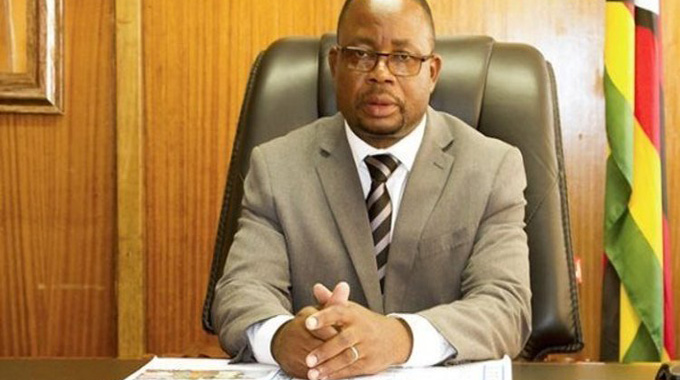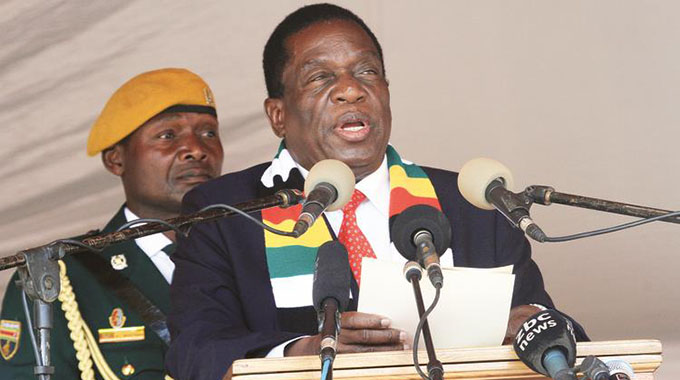‘Don’t turn away pupils for non-payment of fees’

Rumbidzai Ngwenya
Despite the Government’s directive that discourages sending learners back home for non-payment of fees, some schools continue to flout this order, affecting the children’s right to access education.
Most schools, both rural and urban, continue to send pupils back home for non-payment of fees. Because of that, most children have missed lessons consecutively in the past.
Primary and Secondary Education Minister Prof Paul Mavima has once again warned against the practice as schools reopened this week.
“We have said it over and over again that no child should be sent away for non-payment of fees. That is Government policy. We don’t expect it to be happening,” he said.
“The matter of fees is between the school and the parent, not the child and under our Constitution every child has a right to go to school.
“We want to provide quality education that is accessible, therefore, no child should be left behind.”
However, the ministry’s policy does not mean that parents should not pay fees for their children, but highlights that whatever measures schools take should not violate children’s right to education.
Over the years school authorities have been urged to engage parents over unpaid school fees through School Development Committees (SDCs) or even take legal action.
The minister emphasised that schools sending pupils back home for non-payment of fees were committing an offence, and urged parents to report such schools to the ministry, which will carry out investigations.
“If there are any headmasters who are sending learners back home for non-payment of fees, they are actually committing a chargeable offence,” he said.
“What needs to happen now is for people to report through the ministry’s system at the district level, provincial level or even call the ministry’s headquarters that a specific headmaster is doing that and we will carry out investigations.”

Stakeholders in the education sector have also condemned the practice of sending home pupils for non-payment of fees
Stakeholders in the education sector have also condemned the practice by some of these schools, saying it hinders the attainment of the SDG 4 Agenda 2030 of quality education.
Some of the schools have adopted extreme measures to induce parents to pay fees in time. These range from denying pupils entry into the schools premises or sitting for end of term exams, access to performance reports and or sending parents threatening text messages.
Speaking on condition of anonymity, one teacher from Muzarabani, who was in Harare on holiday, said schools needed to be monitored and tangible measures put in place to bring to book non-compliant schools.
She raised concern over the continued decrease of pass rates and the rise of child marriages in Muzarabani, citing how staying in school could help curb such problems.
“The issue of poverty is real and because of some religion practises girls are married off early in Muzarabani. However, if these children can be kept in school, the rate of child marriages could be reduced.
“A decent education for these children may change their destiny.
“As much as parents are obliged to pay fees, we also have to consider the harm associated with the idea of sending pupils home. We have a newly implemented curriculum that needs constant monitoring and when these pupils are sent home they never catch up. Some miss classes for days and these are the same children who fail,” she said.
Although there are some parents who can afford to pay fees some are simply taking advantage of the Government’s directive and going for years in debt. A widow, Mrs Mhondiwa from Chikomba, blamed poverty for her failure to give a decent education to her children. She lives below the poverty datum line of $1,50 per day.
She has four children to fend for on limited income. She told The Herald that she was struggling to feed the children, let alone pay fees.
She owes the school more than $200.
“I know I should be paying fees for my children but for now I simply cannot afford.
“I have four children in school, which means I need about $70 per term apart from food and other basics. Now I am more than $200 in debt and still don’t have a plan,” said Mrs Mhondiwa
Mhondiwa is struggling to make ends meet.

New curriculum textbooks
“I am a small-scale farmer and I hardly get much that sometimes we go for days without little things like soap. As much as I want to pay fees for my children, I also have to feed them,” she added.
She said the implementation of income-generating projects for widows like her would improve their lives.
Asked why she could not work for the school to clear her debt she responded: “The majority of parents are in debt for non-payment of fees and we cannot all work at the school.”
As much as $15 per term may seem little, but for the rural folk who live way below the poverty datum line and with limited sources of income, like Mrs Mhondiwa, it is much.
Although the Government introduced the Basic Education Assistance Module (BEAM) programme to cushion poor and vulnerable children, not all can be covered.
Recently the Zimbabwe Vulnerability Assessment Committee (VAC) recommended the increase in coverage of the BEAM to mitigate the challenges faced by a large number of children who are unable to access education in rural areas.
According to the 2018 Vulnerability Assessment Report, 66 percent of children in rural areas and 18,4 percent in urban areas were turned away due to non-payment of fees.
As it stands with the prevailing economic situation, the Government simply cannot afford to give free or almost free schooling to every child in Zimbabwe, but every child needs to stay in school.
School authorities and parents should work together and not disadvantage the child or the school.









Comments